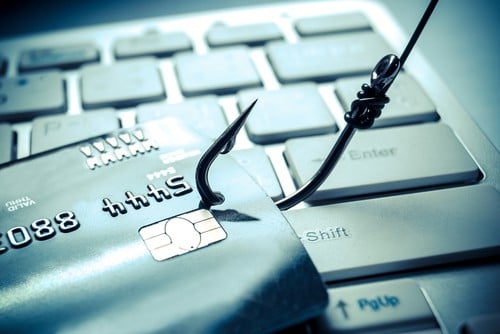It's no surprise that the novel coronavirus is completely reshaping our physical world. From travel and employment to education and the lines in your local supermarket, almost everything is changing around this virus.
COVID-19 is also shifting the virtual world.
Amidst a workforce that has rapidly moved online, this pandemic also reaches into our digital lives.
And in Europe, hit hard by the coronavirus before the U.S. and Canada, they experienced a preview of how cybercriminals are reacting.
Europe's increasing coronavirus complications with cybercrime
In some ways, it makes sense. With the entire globe retreating into homes and computers, it's fitting that crime would do the same.
According to a new report from Europol, the EU's crime fighting agency, cybercriminals are profiting off an anxious public.
Europol put it like this:
"...a number of these measures have a significant impact on the serious and organised crime landscape. Criminals have been quick to seize opportunities to exploit the crisis by adapting their modi operandi or engaging in new criminal activities."
And Europol lists factors that prompt changes in crime and terrorism:
- High demand for certain goods, protective gear, and pharmaceutical products;
- Decreased mobility and flow of people across and into the EU;
- Citizens remain at home and are increasingly teleworking, relying on digital solutions;
- Limitations to public life will make some criminal activities less visible and displace them to home or online settings;
- Increased anxiety and fear that may create vulnerability to exploitation;
- Decreased supply of certain illicit goods in the EU.
These are ideal circumstances for cybercriminals. They're also the exact circumstances that COVID-19 has placed us in.
Criminals have used the COVID-19 crisis to carry out social engineering attacks themed around the pandemic to distribute various malware packages. Read more in Coronavirus Phishing Attack Targets Healthcare Workers.
Cybercriminals are also likely to exploit an increasing number of attack vectors as a greater number of employers institute telework and allow connections to their organizations' systems.
Coronavirus fraud and scams in Europe will likely spread
But the consequences run deeper than cybercrime. Fraud and property crime are also occurring in Europe as a result of the coronavirus.
"An investigation supported by Europol focuses on the transfer of €6.6 million by a company to a company in Singapore in order to purchase alcohol gels and FFP3/2 masks. The goods were never received."
And in some cases, the coronavirus is an excuse used by con artists to get inside where people are sheltering in place:
"Multiple EU Member States have reported on a similar modus operandi for theft. The perpetrators gain access to private homes by impersonating medical staff providing information material or hygiene products or conducting a 'Corona test.'"
Europol's Executive Director, Catherine De Bolle, was firm in her thoughts about these criminals:
"While many people are committed to fighting this crisis and helping victims, there are also criminals who have been quick to seize the opportunities to exploit the crisis. This is unacceptable: such criminal activities during a public health crisis are particularly threatening and can carry real risks to human lives. That is why it is relevant more than ever to reinforce the fight against crime. Europol and its law enforcement partners are working closely together to ensure the health and safety of all citizens."
For people in the U.S. and Canada, these crimes could be a preview of what's ahead from the criminal side of things. And perhaps this has already started to move across the pond.
The U.S. Department of Justice recently filed an injunction against a "COVID-19 vaccine" website where you could buy a supposed WHO vaccine for the coronavirus even though one does not yet exist.
When it comes to cases of COVID-19, first it was Asia, then it was Europe, now it is the United States and Canada and much of the world.
Just as the physical virus moves around the globe, so too will digital viruses, malware, cyberattacks, and scams that are related to the pandemic.
Interested in the EU report? You can download it here.
[Web Conference resource: Remote Work Vulnerability Management, available live or on- demand]





